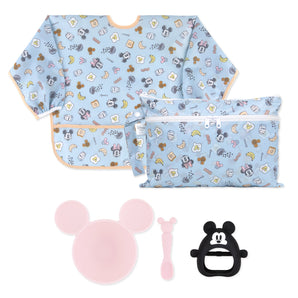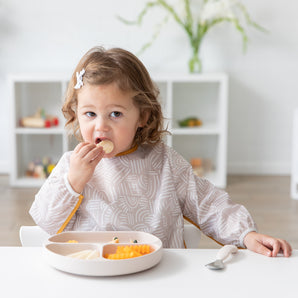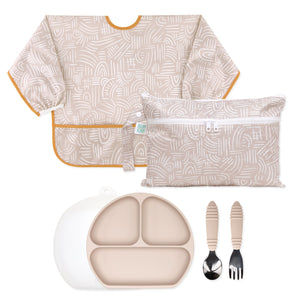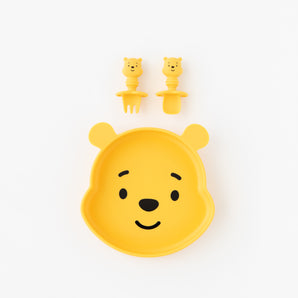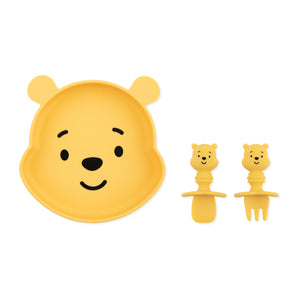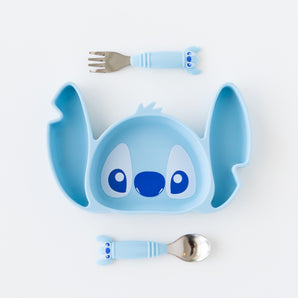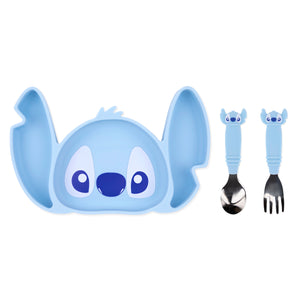Starting Solids?
This expert Q + A will address all your questions about how and when to start!
Many parents are overwhelmed when starting solids. A google search will bring up a myriad of different answers only making things more confusing.

Making matters worse, pediatricians are often too busy to go through this topic in depth with families. Cue, Pegah Jalali of @pediatric.dietitian!
You guessed it, Pegah is a pediatric dietitian with more than 10 years of experience working in pediatric nutrition. Providing education and counseling, she empowers families on their feeding journey, so they can nourish their little ones safely and confidently!
Pulling from the latest research, she shares some basic rules for starting solids with your baby:
At what age should I start giving solids to my baby?
You should start introducing solids around your baby's 6-month birthday. Their precise age is less important than making sure they are developmentally ready.
How do I know they are ready?
- They can hold a seated position unassisted, even if only for a few seconds- head, neck, and trunk control is important! The correct posture can help your baby swallow solids comfortably and reduce the risk of choking.
- Their tongue is not protruding strongly (this is their tongue reflex, naturally very strong until about 6 months
- Baby is showing an interest in food
Please note that all three need of these things need to be present. Starting before your baby is ready has been shown to cause gastrointestinal issues due to an underdeveloped GI tract, food aversions and increased risk of aspiration in babies.
What solids should I introduce first?
If your baby is exclusively breastfed, then focus on high iron foods when starting solids. High iron foods include fortified baby cereal, chicken, beef, lamb, tofu, lentils, and chickpeas. From about 4-6 months, your baby’s iron stores start to run low. Breast milk doesn’t have enough iron to support your baby’s needs at this age. If they are taking formula that is made in the US, then don’t worry since the formula is fortified with iron.
It is best to offer foods that the family is eating to your baby. This helps to teach your baby the flavors of your diet and helps to reduce food waste. When first starting solids, offer 1-3 tablespoons of food to your baby. If they would like more, you can offer more.Should I do baby-led weaning or purees?
Currently, there is no research to show that BLW is a better option than traditional purees. A combo approach is another approach that is really popular where parents can choose to incorporate both BLW and purees.
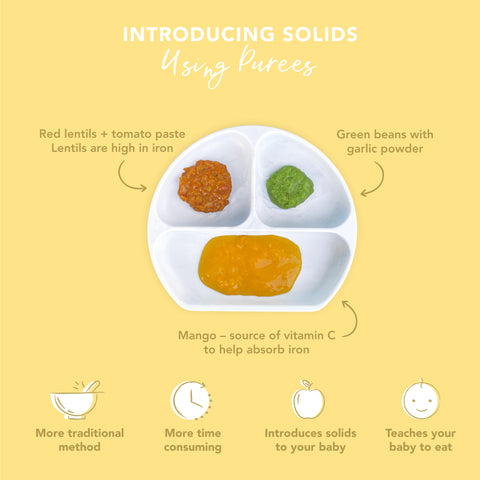
Many parents worry about choking with BLW, but research has shown that there is no difference in the number of choking events with either method of feeding your baby.
BLW can be easier on parents since they do not need to prepare different foods for baby and the rest of the family.

There is no “best” way to introduce solids. It is best for parents to pick a method that resonates with them and their baby.

Where should I feed my baby?
You should always feed your baby in their highchair or seated on your lap in an upright position. Feeding them in a car seat, or baby chair puts them at an incline that can increase the risk of choking.
What time of the day should I start?
It is best to offer solids 20-30 minutes after a milk feeding so that baby is not too hungry. If your baby is too hungry at a meal, this may cause them to get very frustrated. You don’t need to offer solids at the same time every day.
What else should I offer?
You can start to offer a small amount of water with solid meals. Offer about 1 oz in an open cup every time you offer solids.
Learning to drink water is a skill so don’t worry if your baby does not do this well in the beginning. A small amount of water can also help teach your baby to chew and offset constipation which is common when first starting solids. Your baby does not “need” to drink water, so don’t worry if they do not drink much. You are helping them learn a skill.
When can I offer allergens?
Current guidelines recommend introducing common food allergens like eggs, peanuts, tree nuts, dairy, wheat, and soy early when introducing solids. Early introduction has shown to help reduce the potential of developing food allergies. It is best to introduce the allergens you eat often as a family to your baby.
Can I give my baby honey?
No, honey in any form is very dangerous to babies. Honey can contain clostridium spores that can cause infant botulism.
Share your lingering feeding questions in the comments below and be sure to check out our Snacking 101 IGLive Chat with Pediatrician Pegah!



